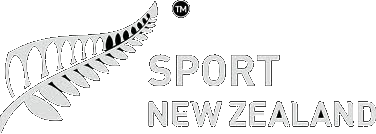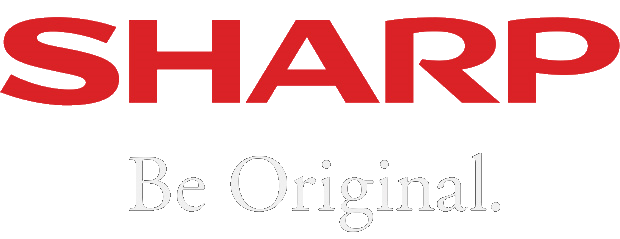Two new New Zealand Squash Hall of Fame Inductees
30 Oct 2023The Father of New Zealand Squash Inducted into Hall of Fame
The man often referred to as ‘the father of New Zealand squash’ has been inducted into the Squash Hall of Fame 74 years after his death.
Geoffrey Kingscote was instrumental in developing the game of squash in New Zealand and lives on in squash history as our first ever national champion.
Kingscote grew up in the UK, where he discovered his passion for squash as a teenager. Aged just 19 he packed his bags and moved across the world to Christchurch, and in 1914 joined the prestigious Christchurch Club, with his involvement to soon have a profound influence on New Zealand squash.
His squash was put on hold during World War I, when Kingscote served for four years in Egypt, France, Belgium, Mesopotamia, Persia and Russia. He was a company officer and an intelligence officer with the New Zealand Rifle Brigade and was part of the Dunster Force that organised the Armenians against the Turks. He reached the rank of major, received mentions in dispatches, and was wounded in Persia.
On his return to New Zealand, Kingscote began to have a real impact on the small squash community, using the skills he had picked up in the UK to contribute to the development of stroke techniques in New Zealand, including drop shots and boasts.
In 1928, the Christchurch Club replaced its old wooden court with the country's first standard-sized court, which boosted interest in squash and led Kingscote to organise a national championship in 1932. Although he was nearly 44, Kingscote won the national title. In the following years he continued to compete and played a significant role in the administration of New Zealand squash, serving as the president of the national association from 1932 to 1947. He was the first person elected a life member of New Zealand Squash, in 1947.
When Kingscote died on June 9, 1949, the squash association's management committee created the Kingscote Cup in his honour. During that time, few titles were available, and the Kingscote Cup was awarded to the men's plate winner.
His grandson, William Kingscote, says the family is thrilled to see Geoffrey inducted into the Squash Hall of Fame.
“It’s a huge honour for our family to see him recognised for his contribution to squash,” says William.
“We didn’t know him, and didn’t know much about him until we read the book Long or Short?, which tells the history of New Zealand squash. This Hall of Fame induction has made his presence even more real, and we keep learning more about our grandfather, which is really special for us.”
Pioneering Murray Lilley Inducted into Squash Hall of Fame
Murray Lilley was a star during a formative time for New Zealand squash, playing a tough, uncompromising brand of squash that relied heavily on his fitness and grit.
The Taranaki athlete didn't take squash seriously until he was 19, as tennis was his preferred racket sport. However, he rapidly improved his skills and in 1970 travelled to Australia as part of a national colts side before taking several years off to travel overseas.
By 1975, Lilley was back in New Zealand and rocketed up the rankings, being awarded the Vogel Rosebowl as the most improved male player in the country. He’d evolved into a durable and relentless player, with a fierce competitive spirit, even though he lacked a wide array of strokes.
“I did what I did mainly off fitness,” says Lilley. “I wasn’t as skilful as other guys, but used to train and train and train. I’d do regular run tests and agility tests with Rob Crothall. He was such a motivator and made me a lot better. He was a phenomenal trainer and really inspired me.”
In 1976 Lilley represented New Zealand in the Hashim Khan Invitation tournament in Karachi. The competition went well for the Kiwi and it inspired him to push on in his career. “I was extremely fit at that point and managed to beat the No 8 in the world and I almost beat the No 9. I became a bit of a hero in Pakistan and was even invited into the President’s box.
“That’s when I thought, ‘I’m gonna make a career out of this. So I went to London. Bruce Brownlee was there too, and we’d play every day. I really improved. Bruce and I were playing a lot of the top players in the world and being around that tough competition really sharpened our games.”
The following year Lilley again hit the headlines, playing the longest squash match ever to that time. The match lasted a whopping 2 hours and 35 minutes, with Lilley beating Englishman Barry O’Connor 10-8 in the fifth in a torrid quarter-final of the British Amateur championship.
“That was in the Guiness book of records! Then I had probably the best game I ever played the next round. Luckily we had a day off in between; I wouldn’t have been able to do it without the rest day.”
In 1977, Lilley was a crucial part of the New Zealand team that went within a whisker of winning the world title in Canada. An incident where Lilley was struck in the mouth by his opponent, Mohammed Awad, during a pivotal match against Egypt may have cost New Zealand the title.
Not long after that event, Lilley turned professional, reaching a career high No 10 world ranking. He became a consummate professional, known for his fighting spirit and perseverance. He was one of the early pioneers of professional squash in New Zealand and served as an inspiration to emerging players like Ross Norman and Stuart Davenport.
In 1980, Lilley settled in Calgary, Canada. He eventually relocated to Florida, where he became the head tennis pro at the appropriately named Kiwi Tennis Club in Indian Harbour Beach.
“The people I met and the experiences I’ve had through squash have been incredible,” he says.
“I met so many good people through the sport and have friends all over the world. I’m really honoured to be named to the Hall of Fame and it’s special for me to have my name beside those already there.”
The Squash New Zealand Poipātū Aotearoa and Hall of Fame 2023 Awards Dinner takes place on Saturday the 9th December, followed by the semi finals of the New Zealand Squash Open. Book your tickets here
<< Back










